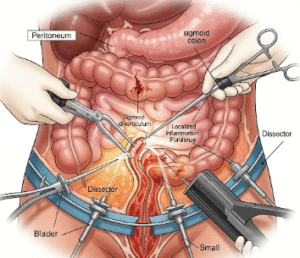Overview
Binge Eating Disorder (BED) is a serious eating disorder characterized by recurrent episodes of consuming unusually large quantities of food in a short period, accompanied by a feeling of loss of control. Unlike bulimia nervosa, individuals with BED do not regularly use compensatory behaviors such as vomiting or excessive exercise. This disorder can have profound physical and psychological effects, including obesity, diabetes, depression, and social impairment.
In Korea, awareness of binge eating disorder is growing, and specialized clinics provide comprehensive care through psychotherapy, medical management, and nutritional support. Early recognition and intervention are crucial for improving long-term outcomes.
What is Binge Eating Disorder?
Binge Eating Disorder is defined by recurrent binge eating episodes that occur at least once a week for three months or more. Key features include:
- Eating a significantly larger amount of food than most people would under similar circumstances
- Experiencing a sense of loss of control during the episode
- Eating rapidly, even when not physically hungry
- Eating alone due to embarrassment about the quantity consumed
- Feeling guilt, shame, or distress after overeating
BED differs from occasional overeating in that it is chronic, disruptive, and associated with psychological distress, often requiring professional treatment.
Symptoms
The symptoms of binge eating disorder are both behavioral and emotional:
Behavioral symptoms:
- Frequent episodes of eating large amounts of food quickly
- Eating when not physically hungry
- Eating alone or in secret due to embarrassment
- Hoarding or hiding food
- Frequent dieting without long-term success
Emotional and psychological symptoms:
- Guilt, shame, or disgust after overeating
- Persistent preoccupation with body weight or shape
- Low self-esteem or depression
- Anxiety or stress related to eating habits
Physical symptoms:
- Weight gain and obesity
- Gastrointestinal discomfort such as bloating, acid reflux, or constipation
- Risk of type 2 diabetes, hypertension, and cardiovascular disease
Causes
Binge Eating Disorder arises from a combination of biological, psychological, and environmental factors:
- Genetics: Family history of eating disorders or obesity may increase risk
- Brain chemistry: Dysregulation of neurotransmitters such as dopamine and serotonin affecting reward and impulse control
- Psychological factors: Low self-esteem, depression, anxiety, or history of trauma
- Dieting or restrictive eating: Restrictive diets can trigger cycles of bingeing
- Environmental influences: Social pressures, cultural ideals of thinness, and exposure to food cues
Risk Factors
Risk factors for developing BED include:
- Female gender, though males are also affected
- Adolescents and young adults, particularly during stressful periods
- History of other mental health disorders, such as depression or anxiety
- Chronic dieting or exposure to weight-based stigma
- Genetic predisposition or family history of eating disorders
Complications
Untreated BED can lead to serious physical and mental health complications:
- Obesity and associated metabolic disorders
- Type 2 diabetes, high blood pressure, and high cholesterol
- Gastrointestinal issues including bloating, acid reflux, and irritable bowel syndrome
- Psychological complications such as depression, anxiety, and social isolation
- Reduced quality of life due to health problems and emotional distress
Prevention
Prevention of BED focuses on early recognition, healthy eating habits, and mental health awareness:
- Encourage balanced meals and avoid restrictive dieting, especially in adolescents
- Promote healthy body image and self-esteem
- Address stress, trauma, or mental health concerns early
- Educate families and schools on recognizing signs of binge eating
- Seek professional support for at-risk individuals to prevent the development of full-blown BED
Treatment Options in Korea
Diagnosis
Korean mental health and eating disorder specialists diagnose BED using:
- Clinical interviews to assess eating patterns, frequency, and psychological impact
- Standardized questionnaires such as the Binge Eating Scale (BES)
- Medical evaluation for weight-related complications and overall health
- Screening for coexisting mental health disorders such as depression or anxiety
Psychotherapy
Psychotherapy is the cornerstone of BED treatment in Korea:
- Cognitive Behavioral Therapy (CBT): Focuses on changing maladaptive thoughts and behaviors related to food, body image, and self-esteem
- Interpersonal Therapy (IPT): Addresses interpersonal problems and emotional triggers for binge eating
- Dialectical Behavior Therapy (DBT): Helps manage emotional dysregulation and urges to binge
Medical Management
- Medications may be prescribed to reduce binge frequency or treat comorbid conditions:
- Antidepressants (SSRIs) to address depression and anxiety
- Lisdexamfetamine for adults with moderate to severe BED
- Anti-obesity medications when weight management is necessary
Nutritional and Lifestyle Support
- Dietitian-guided meal planning to establish regular, balanced eating habits
- Education on portion control and mindful eating
- Incorporation of moderate physical activity to improve health and mood
- Support groups to provide encouragement and reduce isolation
Rehabilitation and Support
- Regular follow-up with mental health and nutrition specialists
- Family counseling to improve support systems
- Stress management strategies, including mindfulness, meditation, and relaxation techniques
- Online or community support groups for peer encouragement and relapse prevention
Prognosis
With comprehensive treatment in Korea, individuals with BED can achieve significant reduction in binge eating episodes, improved mental health, and healthier body weight. Early intervention, combining psychotherapy, medical management, and nutritional guidance, leads to the best outcomes. Ongoing monitoring and lifestyle support help maintain long-term recovery and prevent relapse.













